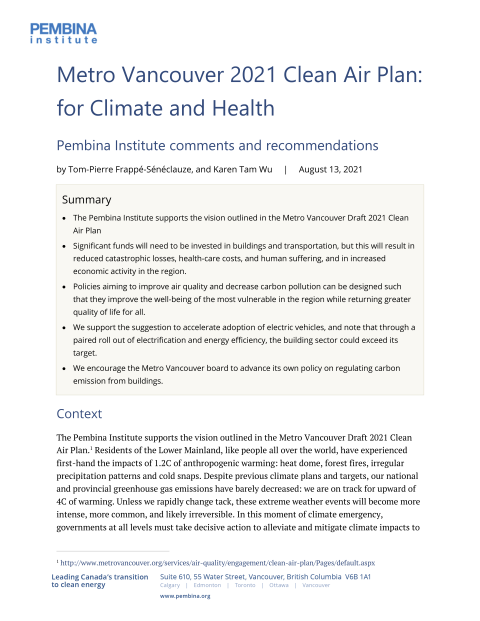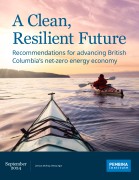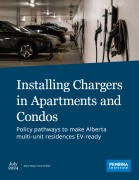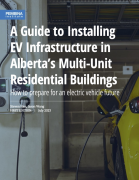Residents of B.C.’s Lower Mainland, like people all over the world, have experienced first-hand the impacts of 1.2C of anthropogenic warming: heat dome, forest fires, irregular precipitation patterns and cold snaps. Despite previous climate plans and targets, our national and provincial greenhouse gas emissions have barely decreased: we are on track for upward of 4C of warming. Unless we rapidly change tack, these extreme weather events will become more intense, more common, and likely irreversible.
In this moment of climate emergency, governments at all levels must take decisive action to alleviate and mitigate climate impacts to protect the long-term safety and prosperity of current and future populations. Metro Vancouver’s 2021 draft Clean Air Plan outlines some early policies necessary to drive needed changes. As the Metro Vancouver Board reviews the draft plan, Pembina Institute offers some considerations for its success and prompt implementation, focussing primarily on transportation and buildings, with some application to industry and agriculture.
There is no way around it: decarbonizing our buildings, industry, and transportation will be expensive. The policy outlined in the Clean Air Plan will require residents and governments to invest significant funds in buildings and transportation: in assets directly managed by Metro Vancouver (Metro Vancouver Housing corporation, fleets and operations), and in private assets. The benefits of these policies, however, lie in reduced catastrophic losses, health-care costs, and human suffering, and in increased economic activity in the region through energy costs savings and additional demand for retrofit services and components. B.C.-wide, renovating our building stock by 2040 would create over 26,000 long-lasting, well-paid jobs and $6.4 billion of annual GDP growth — the majority of which will be in the Metro Vancouver area.
Summary
- The Pembina Institute supports the vision outlined in the Metro Vancouver Board’s draft 2021 Clean Air Plan.
- Significant funds will need to be invested in buildings and transportation, but this will result in reduced catastrophic losses, health-care costs, and human suffering, and in increased economic activity in the region.
- Policies aiming to improve air quality and decrease carbon pollution can be designed such that they improve the well-being of the most vulnerable in the region while returning greater quality of life for all.
- Pembina Institute supports the suggestion to accelerate adoption of electric vehicles, and notes that through a paired rollout of electrification and energy efficiency, the building sector could exceed its target.
- We encourage the Metro Vancouver Board to advance its own policy on regulating carbon emission from buildings.







